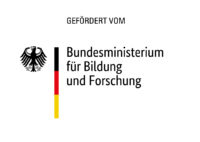
Trusting in Care Technology or Reliance on Socio-technical Constellation?
Februar 15 @ 09:00 - Februar 16 @ 15:00
| FreeIn recent years, there has been a thrust towards bringing robotic and AI technologies into the realm of healthcare, as a tool to respond to impending problems of the aging society. In this context, aged care is seen as a prime testbed for piloting the practicability of assistance systems able to adapt and learn. Many research and development projects have promised to elaborate and implement assisting artifacts like robots that can provide solutions for independent living in old age and/or for reduction of burdens in nursing practice. In this context, research on relational trust has received renewed interest. Trust building in technology-mediated interaction scenarios is increasingly understood as a key factor for making assisting artifacts a part of nursing care. Nevertheless, studies on this issue are confronted with complex conceptual and empirical challenges. How can we (re-)conceptualize relational trust in connection with the digitalization in healthcare? Is there a fundamental difference between trust in the sense of ‘reliance on technical functioning’ and trust in human beings and/or socio-technical constellations? How should we understand the quadrate of trust (care receiver – caregiver – welfare technology – organization/institution) and assess its normative and social implications? What challenges will emerge for nursing practice if assessing artifacts are embedded in the symbolic space of aged care? How will the structure of care relationship be transformed in the course of technology-driven innovation of nursing practice? Can the trustworthiness of assistive care technologies be enhanced by engineering means, and if yes, what do these look like? Is there a need to broaden the scope of user-centered design approach? The conference aims to explore these topics based on a multidisciplinary exchange and invite contributions from Sociological Trust Research, Nursing Research, Social Robotics, HCI/HRI, Philosophy of Technology, Applied Informatics & Robotics, and other relevant research area.

